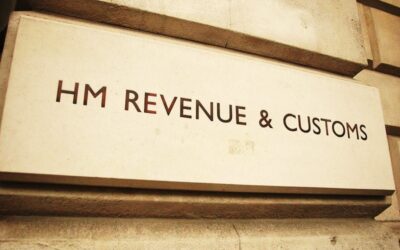The top five tech companies operating in the UK managed to generate profits estimated at £8.1bn from UK customers in 2018, a new analysis by TaxWatch shows.
However, due to these companies implementing complex financial structures to take these profits offshore, these companies only paid a combined total of £237m in taxes on these profits in the UK, an effective tax rate of just 2.9%. That puts the total amount of tax avoided by the companies in the UK at an estimated £1.3bn in 2018, the latest year where figures exist.
| Cisco | Microsoft | Apple | Total | |||
| Current UK Tax Charge | £72,895,000 | £40,101,583 | £30,372,000 | £24,729,000 | £70,877,000 | £238,974,583 |
| UK Estimated Revenues | £9,358,419,600 | £1,677,303,280 | £2,289,953,250 | £2,885,251,840 | £12,270,489,000 | £28,481,416,970 |
| Estimated Profits on UK Revenues | £2,433,189,096 | £443,311,257 | £1,030,478,963 | £952,133,107 | £3,313,032,030 | £8,172,144,453 |
| UK Estimated Tax Liability | £462,305,928 | £84,229,139 | £195,791,003 | £180,905,290 | £629,476,086 | £1,552,707,446 |
| Estimated UK Tax Avoided | £389,410,928 | £44,127,556 | £165,419,003 | £156,176,290 | £558,599,086 | £1,313,732,863 |
The latest figures are an update on TaxWatch’s 2018 study, Still Crazy After All These Years, which looked at the activities of Google, Cisco, Facebook, Microsoft and Apple, five of the largest technology companies in the world, over the period 2013-2017. The latest figures use the same methodology applied to the companies’ 2018 financial accounts.
Methodology
Corporation tax is a tax on corporate profits. Under international principles of taxation a country has the right to tax companies on the profits that arise in their jurisdiction, even if the company is headquartered overseas.
However, it has become common practice for many multinational companies to move profits from higher tax countries to lower tax countries via a series of complex financial transactions. For that reason, the accounting profit declared in the UK accounts of many multinational companies is not an accurate reflection of the real economic profit made by the company from its activities in the UK.
For example, up until 2019 Google booked sales from UK customers in Ireland. The Irish company which recorded sales of Google products then made large royalty payments for the use of Google intellectual property to a Dutch company, money which then eventually ended up in Bermuda. In 2018, the company moved $22.7bn from its worldwide operations to Bermuda in this way.
The result of this is that Google made a relatively small amount of profit in the UK, Ireland, and other countries, and an enormous profit in Bermuda, which has a zero % tax rate. However, given that Google’s Bermuda subsidiary appears to have no employees, whereas the company employs over 3600 people in the UK, are the vast profits made by its offshore shell company an accurate reflection of the real economic profit of the company? We think not.
In order to get a better understanding of the real profit that the companies in our study made in the UK, TaxWatch estimated the total revenue made by these companies in the UK, and applied the company’s global pre-tax profit margin to that revenue. The pre-tax profit margin is the proportion of revenues that is declared as profit before taxes.
From an economic point of view this assumes that the UK market has an average level of profitability vis-a-vis all of the other markets these companies operate in, including their domestic market, the US.
It also assumes that the costs of the company, from research and development to manufacturing and other functions are allocated equally between different markets.
There are some who argue that the approach we have taken overestimates the real profits that these companies make in markets such as the UK because, under international tax rules, profits should be allocated based on where value is created, which is not the same as the location of customers. The argument goes that as much of the research and development conducted by these companies happens outside of the UK, the UK market should receive less profit.
This is an argument also put forward by the companies themselves. Responding to the 2017 Paradise Papers leaks from the International Consortium of Investigative Journalists Apple made the following statement on their website:
Under the current international tax system, profits are taxed based on where the value is created. The taxes Apple pays to countries around the world are based on that principle. The vast majority of the value in our products is indisputably created in the United States — where we do our design, development, engineering work and much more — so the majority of our taxes are owed to the US.
This could be a reasonable argument for Apple to make if in fact the company allocated most of its profit to its operations in the United States (where it says that the vast majority of its value is created). The fact is that it does not.
Apple’s latest annual financial statements state clearly that the company’s pre-tax profits outside of the United States were $44.3bn in the year until November 2019 and $48bn in 2018. That accounted for 67% and 66% of the company’s entire pre-tax profit. As far as Apple’s financial accounts are concerned, the majority of the company’s profit is made outside of the US.
In fact, according to Apple’s accounts, the distribution of the company’s pre-tax profit is much more closely aligned with the distribution of its net sales. In 2019 the US market accounted for 39% of sales and 33% of the profits made by the company.
Other companies also report that their operations outside of the US are more profitable than their US operations, suggesting that our approach in fact underestimates the amount of profit that these companies really make in countries such as the UK.
For example, the latest Microsoft annual report shows that worldwide the company made revenues of $126bn in 2019. Of this, 51% was received from customers in the USA and 49% from customers in the rest of the world.
Microsoft also declares the pre-tax profit the company makes in its US domestic segment as against its non-domestic segment. This suggests that the pre-tax profit margin of Microsoft is 24.6% in the USA, but 45.2% in the rest of the world.
At no point do we pretend that the figures presented here are an exact answer to how much profit these companies make in the United Kingdom. That would be impossible to determine without access to detailed figures from inside these companies. However, we do argue that our approach gives a much more realistic estimate of the real profits made by these companies in the UK market as opposed to the profits declared in the accounts of their UK based subsidiaries.
Until 2016 Google reported the revenues it made from the UK in its US 10-K filing. On average, around 9% of Google’s global revenues came from the UK between 2014 and 2016. We applied this average figure to Google’s 2018 global revenues to estimate the revenues generated from the UK in 2018.
Over the last five years Google has consistently made a profit margin of over 25% on all of its worldwide sales. In 2018, Alphabet, the parent company of Google reported profits of $34.9bn, on revenues of $136.8bn. The same profit margin applied to the UK revenues of Google would yield a profit of £2.4bn, and a tax bill of £462m.
Google UK had a current tax charge of £72.9m in 2018.
In January 2019 it was revealed that Google had changed its corporate structure, moving its intellectual property from Bermuda back to the United States. This does not impact our study (which only covers 2018) and is unlikely to impact profits declared in the UK in the future. This is because rather than paying royalties to Bermuda, the company will simply make the same payments to the US where under the new FDII rules these payments will be subject to a substantial tax break.
Cisco
Cisco Systems has a subsidiary based in the UK called Cisco International Limited. It is responsible for the majority of Cisco’s sales in the Europe, Middle East, and Africa region. The accounts of Cisco Systems International report separately on the revenues the company makes from UK sales, which were £1.7bn in 2018.
Cisco Systems made a profit margin of 26% in 2018 on all of its global sales. Applied to its UK sales this would yield a profit of £443m, and a tax bill of £84m. However, in 2017, Cisco International Limited and another UK subsidiary, Cisco Systems Limited, were charged £40m in tax between them.
Facebook’s global accounts do not break down their revenues by geography at all, whilst the accounts of the company’s UK subsidiary do not reflect the real UK revenues.
Until 2016, Facebook booked all of its UK revenue in a subsidiary in Ireland. Following public pressure about the company’s tax affairs, it started booking revenue from its largest customers through Facebook UK rather than an Irish subsidiary. However, smaller customers would still receive invoices from Ireland, meaning that Facebook UK’s accounts are not a true reflection of the revenue the company makes from UK customers.
In order to estimate Facebook’s real revenues in the UK, we looked at Facebook’s average revenue per user (APRU), which is published in a chart, broken down by region, appended to the company’s US stock market filings. We then took the mid-point between the US APRU and European APRU basing this calculation on the assumption that the UK would be at the top end of the European APRU range, but less than the US. Recent market research puts Facebook’s userbase in the UK at 39 million users, an increase on previous estimates of 32 million. To get an estimate for UK revenue we then multiplied the APRU by 32 million.
In 2018, the company had a tax charge of £30.3m – substantially more than the £16m tax charge they recorded in 2017.
Our estimate based on how much Facebook makes per user puts revenues in the region of £2.29bn in 2018 from UK customers.
In 2018, Facebook globally had a profit margin of 45%. If we assume that the UK market is no less profitable than any other market the company operates in, then the company should have generated a profit of around £1bn in 2018.
A profit of £1.03bn would yield a tax charge of £195.8m.
Microsoft
Microsoft UK appears to have made a significant accounting change since 2017, with significantly more revenue from customers from the UK being recorded in its UK accounts. Between 2017 to 2018 Microsoft UK’s sales to 3rd parties increased by more than £1bn.
However, this increase in sales to 3rd parties does not seem to have been at the expense of Microsoft’s Irish subsidiary, Microsoft Ireland Operations Limited, which saw its revenues increase from $22.8bn in 2017 to $27.5bn in 2018. Microsoft Ireland Operations Limited makes sales to customers throughout the EMEA region.
Previous editions of Microsoft Ireland Operation’s accounts provided a figure for revenues earned from the UK. Between 2013 and 2015 the proportion of the company’s global revenues that came from the UK ranged between 3.12% and 3.6%.
To estimate revenues that Microsoft gained from the UK in 2018 we applied an average of 3.44% to the global revenue of Microsoft in that year.
Overall, Microsoft made a pre-tax profit of 33% on its revenues in 2018.
In total, we estimate that Microsoft generated revenues of £2.9bn in 2018 from UK customers. This would yield an estimated profit of £952m and a tax bill of £181m in 2018. Microsoft Limited in the UK had a tax bill of £24.7m in 2018.
Apple
Apple is one of the most opaque of all of the companies we looked at, and so most difficult to analyse.
In order to estimate how much revenue Apple makes from the UK market, we looked at the amount of money spent by UK customers on iPhones in the UK which was constructed from data on smart-phone penetration and market research. This shows that £6.3bn was spent on iPhones in the UK in 2017. This accounts for 6% of Apple’s global iPhone sales. We were not able to obtain updated figures for 2018, and so to estimate Apple’s 2018 revenue in the UK, we applied the same figure, 6% to the company’s global revenues.
Assuming that Apple makes 6% of its revenues in the UK, it would have generated £12.3bn from UK customers in 2018.
Applying Apple’s global pre-tax profit margin of 27% to these revenues implies an estimated profit of £3.3bn and a tax bill of £629m in 2018. Apple’s three UK subsidiaries had a UK tax charge of £70.8m in 2018.
This research was featured in the Daily Mirror, The Telegraph, and the Mail on Sunday among others.



